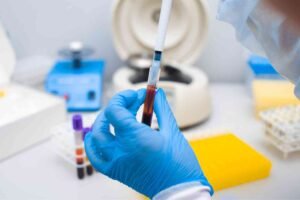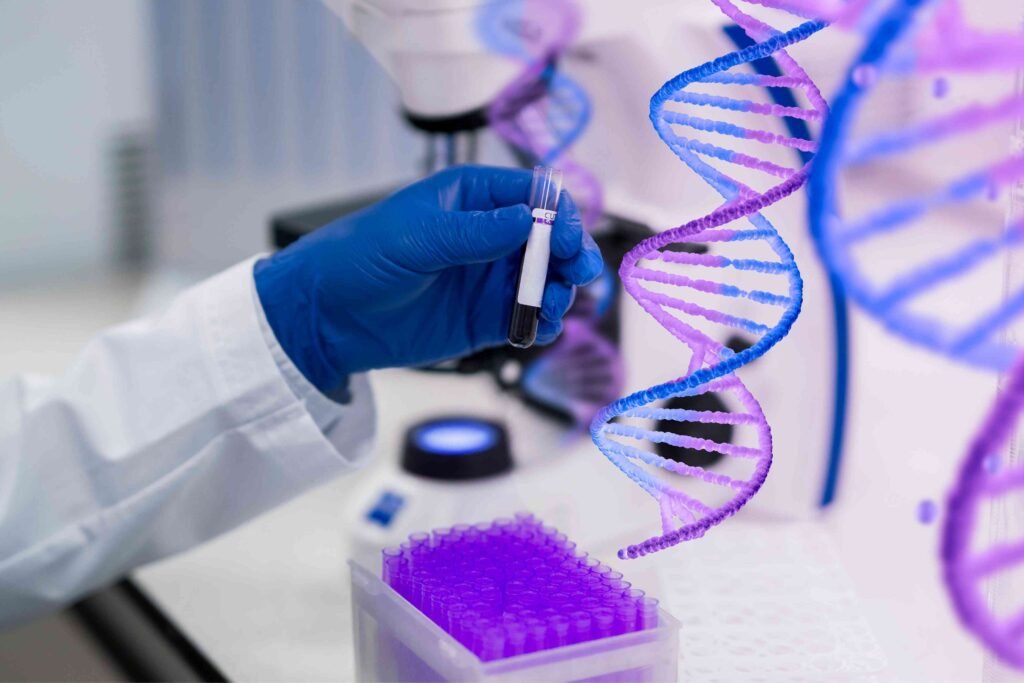Importance of Genetic Testing in Cancer Prevention & Treatment
When it comes to health, knowledge is power. In recent years, genetic testing has emerged as a powerful tool in the fight against cancer. It has revolutionized the way we approach cancer prevention, diagnosis, and treatment. By understanding our genetic makeup, we can uncover predispositions to certain cancers and take proactive steps toward safeguarding our health. Let’s dive into why genetic testing is so vital and how it plays a critical role in both preventing and treating cancer.
What Is Genetic Testing?
Before we explore its importance, let’s first understand what genetic testing is. In simple terms, it’s a medical test that analyzes your DNA—your body’s genetic blueprint—to identify changes or mutations in your genes. These mutations can determine whether you’re at a higher risk of developing certain diseases, including cancer.
Genetic testing typically involves taking a sample of your saliva or blood, which is then analyzed in a lab. The results can reveal inherited genetic mutations that increase your likelihood of developing cancer or other hereditary diseases. These insights are especially valuable for cancers like breast cancer, ovarian cancer, colorectal, and prostate cancer, which are often linked to inherited gene mutations.

How Genetic Testing Helps in Cancer Prevention
1. Identifying Your Risk Early
One of the most significant benefits of genetic testing is its ability to identify cancer risks early. If you have a family history of cancer, genetic testing can help you understand whether you carry mutations in genes like BRCA1, BRCA2, or others associated with specific cancers. Knowing your risk allows you to take preventive measures before cancer has a chance to develop.
For example, women with BRCA gene mutations have a significantly higher chance of developing breast or ovarian cancer. Armed with this knowledge, they can opt for more frequent screenings, lifestyle changes, or even preventive surgeries to reduce their risk.
2. Tailoring Screening Schedules
Most people follow standard screening guidelines for cancer based on their age and gender. But if the testing reveals a higher-than-average risk, doctors can customize a screening schedule tailored specifically for you. This ensures cancers are detected at the earliest possible stage, when treatment is most effective.
For instance, if you’re at high risk for colorectal cancer due to inherited mutations, your doctor might recommend starting colonoscopies at a younger age or having them more frequently than usual.
3. Empowering Lifestyle Changes
Sometimes, your genes can reveal a predisposition to cancers influenced by environmental or lifestyle factors. With this information, you can make informed choices about your diet, exercise routine, smoking habits, and other factors that impact your cancer risk. Genetic testing doesn’t just give you data—it empowers you to take charge of your health.
Genetic Testing in Cancer Treatment
1. Personalizing Cancer Therapies
In cancer treatment, one size does not fit all. Every person’s cancer is unique, and genetic testing allows doctors to tailor treatments to the individual. This approach, known as precision medicine, has transformed cancer care.
By analyzing the genetic mutations in your tumor, doctors can determine which treatments are most likely to work for you. For example, targeted therapies are designed to attack specific mutations in cancer cells, sparing healthy cells in the process. This leads to more effective treatments with fewer side effects.

2. Predicting Treatment Response
Another way genetic testing aids in cancer treatment is by predicting how well you might respond to certain therapies. Some people metabolize chemotherapy drugs differently due to their genetic makeup. Testing can help doctors choose the right drugs and dosages, improving outcomes and minimizing adverse effects.
For instance, if a genetic test reveals that your cancer is driven by mutations in the HER2 gene, targeted drugs like trastuzumab (Herceptin) can be highly effective. Without the testing, such personalized treatment might not be possible.
3. Monitoring for Recurrence
Even after successful treatment, some cancers have a higher likelihood of coming back. Genetic testing can help predict the risk of recurrence and guide post-treatment monitoring. For high-risk patients, doctors can implement more rigorous follow-up plans to catch any recurrence early.
Who Should Consider Genetic Testing?
You might wonder if genetic testing is for everyone. While it can benefit many people, it’s especially recommended for those who have:
- A strong family history of cancer (e.g., multiple relatives with the same type of cancer or cancers linked to a specific gene mutation).
- A personal history of cancer diagnosed at a young age.
- A rare or unusual type of cancer, such as male breast cancer.
- Family members who have already tested positive for a cancer-related gene mutation.
If you fit into any of these categories, talking to a genetic counselor can help you decide whether testing is right for you.

Addressing Common Misconceptions About Genetic Testing
Despite its benefits, genetic testing is sometimes misunderstood. Let’s clear up a few common myths:
- “Genetic testing guarantees you’ll get cancer.”
This isn’t true. Genetic testing identifies your risk, but it doesn’t mean you’re destined to develop cancer. Many people with genetic mutations never get cancer, while others without mutations might still develop it. - “Genetic testing is only for people with a family history of cancer.”
While family history is an important factor, genetic testing can also be valuable for people without a strong family history. Certain genetic mutations occur spontaneously and aren’t inherited, but they can still increase your risk. - “Genetic testing is too expensive.”
While the cost of genetic testing can vary, it has become more affordable over the years. Additionally, many insurance plans cover the cost if testing is medically necessary. Some organizations also offer financial assistance for those who qualify.
Emotional Considerations
It’s important to acknowledge the emotional side of genetic testing. Learning that you have a higher risk of cancer can be overwhelming and even frightening. But it’s also empowering. With the right support—whether from genetic counselors, healthcare providers, or loved ones—you can take proactive steps to protect your health.
Genetic testing also has implications for your family. If you test positive for a genetic mutation, your relatives might also be at risk. Sharing this information can help them make informed decisions about their health, creating a ripple effect of awareness and prevention.

The Future of Genetic Testing
As technology advances, the role of genetic testing in cancer prevention and treatment will only grow. Researchers are discovering new cancer-related genes, and testing is becoming faster, cheaper, and more accessible. In the future, genetic testing might become a routine part of preventive healthcare, allowing everyone to benefit from personalized risk assessments and treatment plans.
Additionally, the integration of artificial intelligence and machine learning into genetic testing holds promise for even more accurate predictions and targeted treatments. The possibilities are exciting and could revolutionize the way we approach cancer care.
Final Thoughts
Cancer is a complex disease, but genetic testing offers a way to untangle some of its mysteries. By identifying genetic risks and tailoring treatments, it has the potential to save lives and improve outcomes. Whether you’re considering genetic testing for prevention, treatment, or both, it’s a step toward taking control of your health.
If you’re unsure about whether the testing is right for you, talk to your doctor or a genetic counselor. They can guide you through the process and help you understand the results. Remember, knowledge is power, and in the case of cancer, it can be life-saving. So don’t hesitate to explore how genetic testing could benefit you or your loved ones.


